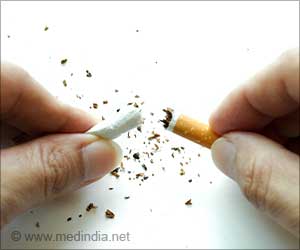According to a study examining 23 years of research on underage drinking, State laws aimed at reducing underage drinking save 732 lives a year in the U.S.
According to a study examining 23 years of research on underage drinking, State laws aimed at reducing underage drinking save 732 lives a year in the U.S.
The study also found that the 'use and lose' laws, which prohibit people under the age of 21 from purchasing or possessing alcohol, and from driving with any alcohol in their system, could save 165 more lives, if adopted by all States in the country.For their study, the researchers analyzed data from 1982 through to 2004, using the Alcohol Policy Information System (1998-2005); the Digests of State Alcohol-Highway Safety Related Legislation (1983-2006); the Westlaw database; and the Fatality Analysis Reporting System data set (1982-2004).
Focusing on six key underage drinking laws and four general impaired-driving and traffic safety laws, the researchers found that the most significant impact came from four underage laws.
They discovered that three of the four more general laws that target all drivers were also effective in reducing drinking driver crash deaths for all ages.
These included laws that make it illegal to drive with over .08 blood alcohol content (BAC), suspend a license for exceeding the .08 BAC while driving, and enable a police officer to pull over a driver who was not wearing a seatbelt.
It was found that the direct effects of laws targeting drivers of all ages on adult drinking drivers aged 26 and older were similar.
Advertisement
"These results provide substantial support for the effectiveness of under age 21 drinking laws and point to the importance of key underage drinking and traffic safety laws in efforts to reduce underage drinking-driver crashes," said James C. Fell, M.S., of the Pacific Institute for Research and Evaluation (PIRE) in Calverton, Maryland.
Advertisement
While 44 states have laws that restrict young drivers with an intermediate license from driving late at night, Fell claimed that this had no clear effect on preventing underage drinking-related fatalities.
Last year, the researchers found that laws making it illegal to possess or purchase alcohol by anyone under the age of 21 had led to an 11 percent drop in alcohol-related traffic deaths among youth.
Also, they found that states with strong laws against fake IDs reported 7 percent fewer alcohol-related fatalities among drivers under the age of 21.
"People who want to lower the minimum drinking age say that the positive effects of raising it to 21 only took place in the 1980s and has since lost its impact. But we looked at these numbers over a 23-year period. This study shows the impact is still strong, and is keeping the numbers of underage drinking and driving deaths down-more so than if the drinking age is lowered," said Fell.
The study has been published in the online version of the journal Alcoholism: Clinical and Experimental Research (ACER).
Source-ANI
ARU









